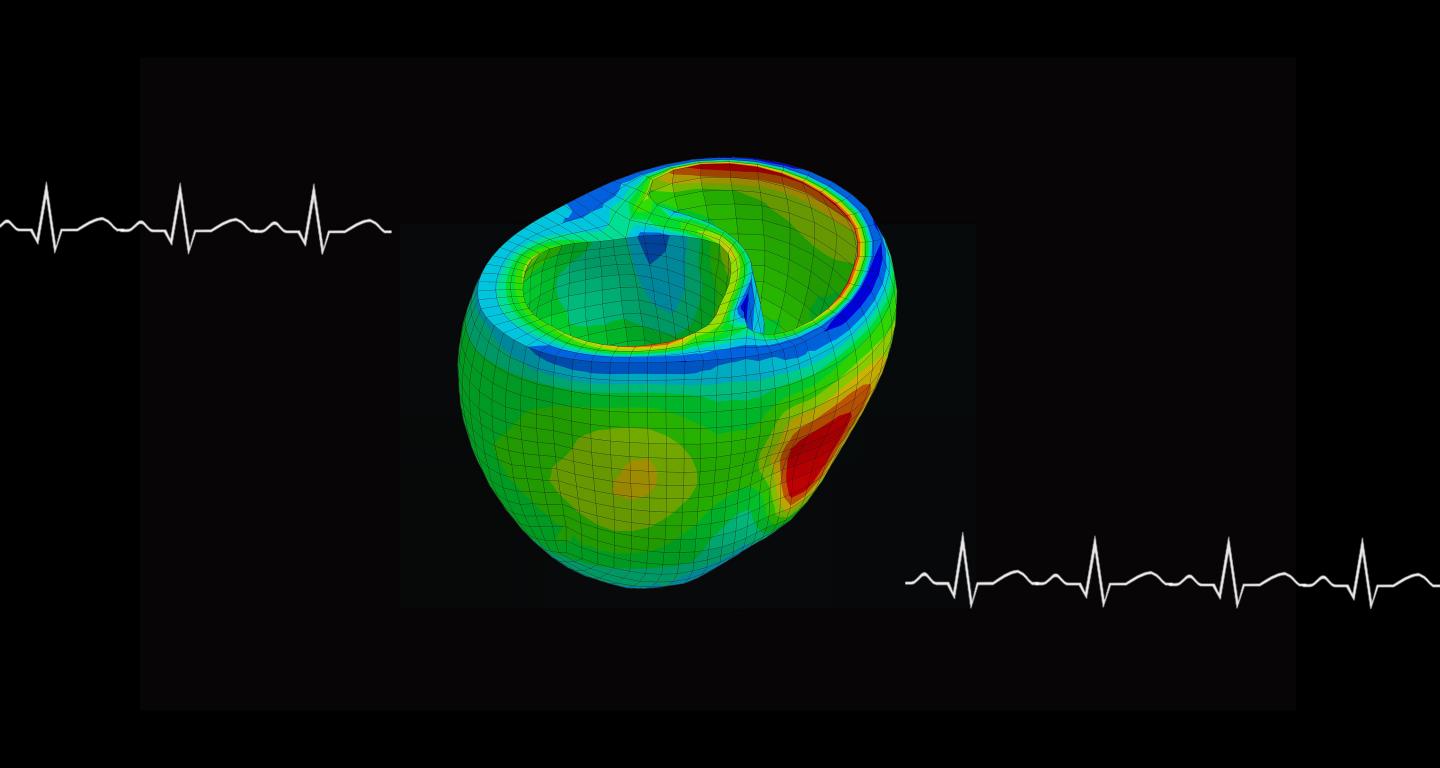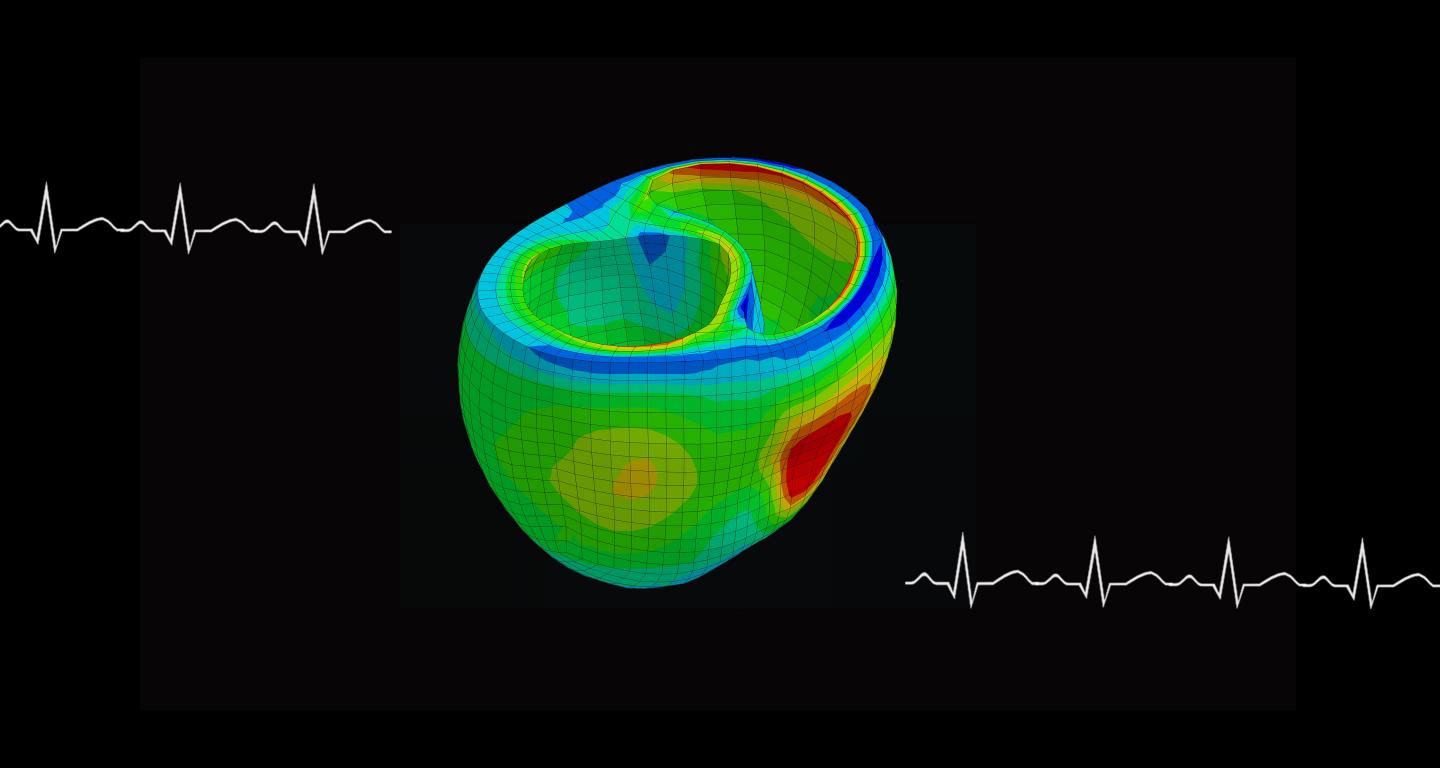
Credit: University of Kentucky
LEXINGTON, Ky. (Oct. 17, 2017) — Picture this: you're battling heart failure and meeting with your doctor to discuss treatment. Before prescribing anything, the doctor pulls up a virtual model of your heart on her computer and "treats" it with several drugs. A few moments later, she can see how your heart is doing five years down the road.
Your doctor chooses the treatment with the best long-term outcome, and you live a longer and healthier life.
Two University of Kentucky researchers are working to make this experience a reality for the 5.7 million adults in the U.S. with heart failure.
Combining physiology and engineering, UK's Kenneth Campbell and Jonathan Wenk are developing computer software to deliver better therapies for patients with life-threatening heart failure. The National Institutes of Health recently awarded the team a $3 million five-year grant to create a computer model of the heart that can be customized to individual patients and predict long-term results.
"If you gave a patient a drug, how would their heart beat in the next second? Folks are pretty good at predicting that, but we're trying to predict how their heart will grow over months and years after taking a pill or having a genetic mutation," said Campbell, associate professor of physiology and cardiovascular medicine.
The computer model would take MRI or genetic data of a patient and build a multiscale simulation of their heart, leading to more personalized treatment plans. The model could also serve as a screening tool for scientists and drug companies who are trying to develop new therapies.
"This model will have tremendous predictive power, meaning it will change and adapt in response to treatment or disease," said Wenk, an associate professor of mechanical engineering and Gill Professor in Engineering. "For doctors, this is another tool that could guide them in their decision process."
Only a handful of teams in the world are working in this area, and few are as collaborative. With Wenk's engineering skills and proficiency in organ-level function and Campbell's expertise in medicine and molecular-level function, they are among the first — if not the first — to incorporate the effects of genetic mutations into a model of the heart.
The team, which includes collaborators at Michigan State University and Pennsylvania State University, will specifically aim to better understand familial hypertrophic cardiomyopathy, a genetic mutation and the most frequently inherited heart defect that affects about 700,000 Americans.
"This is when the college sports athlete suddenly goes into cardiac arrest on the field with no warning," Campbell said.
The defect often causes the heart to enlarge over time. The computer model will enable the researchers to test how and why certain genes are causing the heart to grow. And if they understand this, they will be able to intervene in that pathway and potentially reverse the abnormal growth.
The computer technique is virtually the same used for classic engineering applications, such as simulating a bridge or a car crash.
"Whether it's a heart or a piece of steel, as long as we understand their governing equations, we can harness them to develop a better design," Wenk said.
Both researchers say they can do more together than either can do by themselves, and UK offers a unique environment for collaboration and success.
Campbell works closely with clinicians at UK HealthCare and the Gill Heart and Vascular Institute, which is among the top 10 programs with the most heart transplants performed in the U.S. Wenk — in addition to working with physiologists and biophysicists — is the only engineering faculty member to hold a joint appointment in UK's Department of Surgery, where he applies engineering concepts to surgical approaches.
With this project and others, the researchers are aiming to develop a top-tier computational cardiology team at UK — because if computers can be used to model better bridges, they can be used to model healthier hearts.
###
UK is the University for Kentucky. At UK, we are educating more students, treating more patients with complex illnesses and conducting more research and service than at any time in our 150-year history. To read more about the UK story and how you can support continued investment in your university and the Commonwealth, go to: uky.edu/uk4ky. #uk4ky #seeblue
Media Contact
Whitney Harder
[email protected]
859-323-2396
@universityofky
http://www.uky.edu
Original Source
http://uknow.uky.edu/research/predicting-how-healthy-your-heart-will-be-years-down-road





